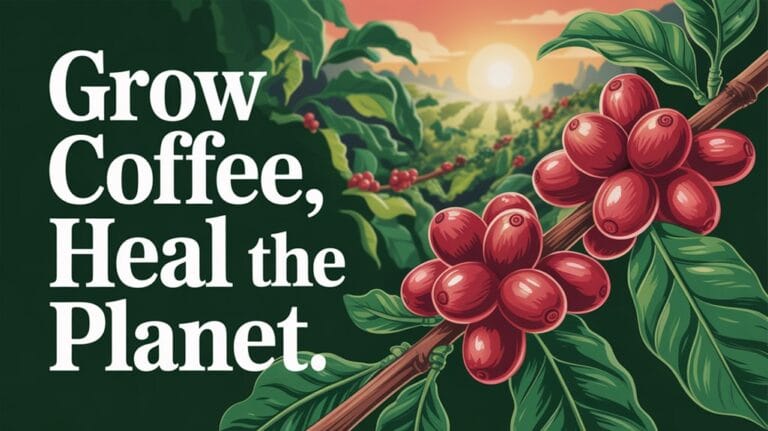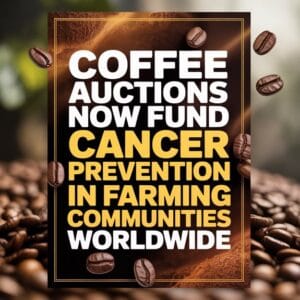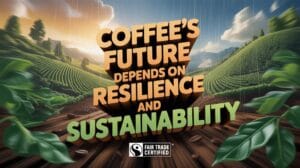On September 9, 2025, the Rainforest Alliance announced the launch of the world’s initial regenerative agriculture certification for coffee. This significant move aims to encourage coffee farmers to adopt practices that improve both their livelihoods and the environment. The new certification is not just about reducing harm; it emphasizes actively repairing ecosystems.
The Rainforest Alliance introduces a groundbreaking certification to transform coffee farming for a sustainable future.
Farmers’ motivation plays an essential role in this shift. Many coffee farmers are facing challenges due to climate change and environmental degradation. They need innovative solutions to guarantee their crops thrive despite unpredictable weather patterns. The regenerative certification aims to boost soil health, build biodiversity, and promote water stewardship. This helps farmers produce better yields while also taking care of the planet. Research suggests that these new practices could increase farmers’ incomes by 20-30%.
With the certification set to officially appear on coffee bags starting in 2026, it targets coffee-producing countries like Brazil, Costa Rica, Mexico, and Nicaragua. This initiative is a way for farmers not only to show their commitment to sustainable farming but also to differentiate their products in increasingly competitive markets. The certification process includes a total of 119 requirements focusing on key areas like climate resilience and farmer livelihoods.
The environmental impact of this certification is significant. It addresses urgent challenges, including soil degradation and water scarcity. By promoting regenerative agriculture, the Rainforest Alliance aims to change how coffee is produced. This system encourages farmers to work with nature rather than against it.
As the world moves towards more sustainable practices, the certification is set to reshape the coffee industry. It’s a critical step in guaranteeing that coffee farming benefits not just the farmers but also the ecosystems they rely on.
The certification serves as a bright guiding light of hope for a more sustainable and resilient future.




